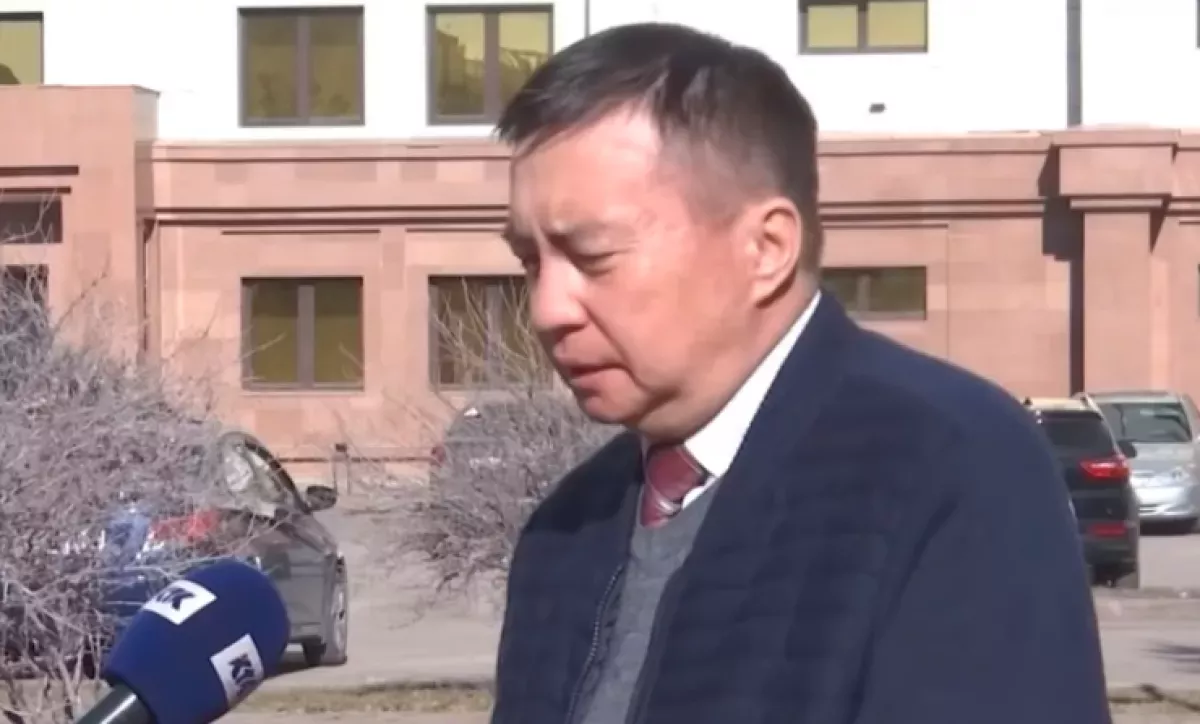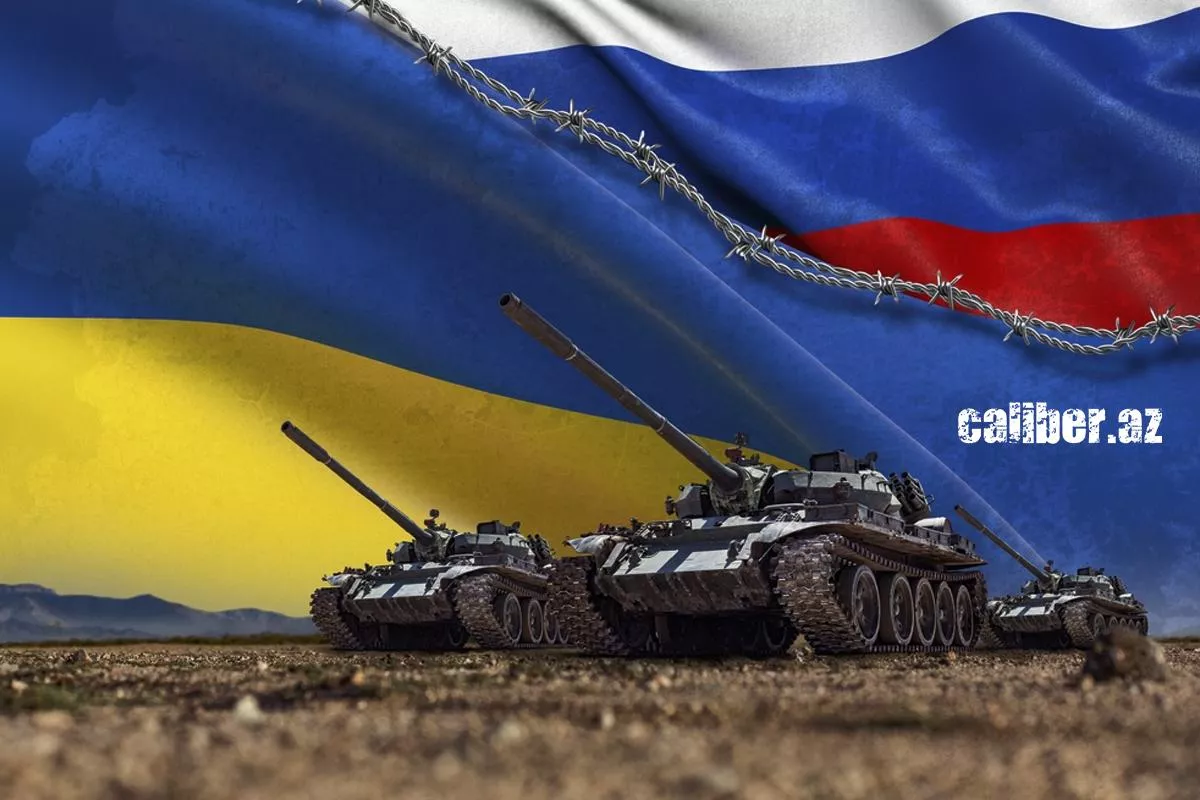US to maintain minimal presence in Central Asia Kazakh expert’s opinion for Caliber.Az
In an interview with Caliber.Az, Kazakh expert and member of the New York Academy of Sciences Nurlan Munbaev express views on US President-elect Donald Trump’s priorities and interests during the second term.

Has Central Asia become less important to the US after the withdrawal of the US troops from Afghanistan? Will US policy toward Central Asia change with Donald Trump's return to power?
During his first term, Trump focused primarily on domestic policy, emphasising a reduction in US presence abroad. This time, the US will likely to continue pursuing a policy of minimal involvement in Central Asia, shifting focus to other issues. This region is unlikely to be a priority for him.
On the other hand, the US may maintain minimal engagement with the region, viewing Central Asia as a geopolitical "buffer" between Russia and China. Therefore, depending on the priorities and interests of the Trump administration, Washington may strengthen economic ties with certain countries, such as Kazakhstan and Uzbekistan, to counter Russian and Chinese influence.
The US and Central Asian countries are negotiating in the C5+1 format. What specific benefits will Kazakhstan have?
First of all, the C5+1 format helps Kazakhstan gain access to various forms of aid and investments, which positively impacts its economy, security, and international image, offering a range of benefits. Primarily, this is about economic cooperation, which opens access to new markets and investments.
It includes support for infrastructure projects, energy modernisation, and the development of transport corridors. I would also highlight the security and stability factor, as the C5+1 format supports measures to ensure regional security, including efforts to combat terrorism, drug trafficking, and transnational crime. Kazakhstan, as a key player in Central Asia, receives support to enhance its own security. The US is also actively promoting environmental protection projects and addressing ecological issues in the region. Kazakhstan may receive assistance in improving its environmental situation.
You have mentioned that Central Asia may not be a top priority for the future White House administration. So, how will the US work to push out its geopolitical rivals — Russia and China from the region?
The US may invest in Central Asia's infrastructure, creating alternative routes for the transportation of goods and energy resources. It could also support the development of private businesses and offer assistance to the region in combating the threats of terrorism and extremism, thereby reducing Russia's influence as the primary security guarantor.
Analysts predict that with Trump’s return, there may be a shift in the US dollar's rate. How could this impact the global economy in general, and Central Asia’s economy in particular?
I share this view. Rising inflation in the US, as well as fluctuations in the value of the US dollar, may impact the global economy, including Central Asia. The inflationary surge may force the Federal Reserve to raise interest rates to curb price increases and strengthen the US dollar. As for the impact on the global economy, a significant strengthening of the US dollar would increase the debt burden for countries with high levels of dollar-denominated debt. In other words, if the US dollar appreciates, the cost of dollar-denominated loans and servicing external debt will rise, particularly affecting emerging markets, including Central Asia to some extent.
If Trump imposes new sanctions and trade tariffs on imports from China, this would also affect Central Asia, wouldn’t it?
Of course, this would also affect Central Asia as a significant portion of Central Asia's trade is tied to the Chinese economy. If the US under Trump tightens sanctions on Russia, it will also negatively affect the economies of Central Asian countries due to their close integration with Russia through trade and labour migration.
In your assessment, is Trump a "convenient negotiator" for Russia when it comes to resolving the Russia-Ukraine conflict?
Donald Trump may be a convenient negotiator for Russia regarding the conflict with Ukraine, but his position carries both potential benefits for Moscow and significant risks. Trump has repeatedly expressed doubts about US support for Ukraine, which aligns with Russia's interests. Therefore, he is likely to be inclined to reduce military aid to weaken Ukraine's defence.
Trump advocates for a swift end to the war, even if it means pressuring Ukraine to make concessions. In such a scenario, Russia would have an easier time securing terms that legitimise its control over territories in eastern Ukraine.

On the other hand, it is important to note that Trump has previously expressed an interest in improving relations with Russia, which is also a positive sign for Moscow.
What are the risks?
Trump is unpredictable, and his stance could change rapidly. For example, he might tighten sanctions or increase military support if he believes it benefits his political career. Trump may shift his focus to domestic issues, leaving the conflict in Ukraine without significant attention. For Trump, resolving the conflict in Ukraine will be an extremely challenging task, and his approach to peace does not guarantee success.
Several factors will play a key role in any potential attempt to "resolve" the conflict. Trump may face strong opposition both from Democrats and some Republicans who support Ukraine and view containing Russia as strategically crucial. This will complicate any attempts to reduce military aid or shift foreign policy toward a quick deal with Russia.
Trump might try to pressure Ukraine into making territorial concessions, but Kyiv is likely to reject any proposals that undermine its sovereignty, especially regarding control over its territories. Any compromises without security guarantees would also provoke dissatisfaction among the Ukrainian people and its international allies.
How do you view Russian President Vladimir Putin’s upcoming state visit to Kazakhstan? Is the Russian leader going to Astana to set Moscow's priorities in the region?
President Putin is heading to Kazakhstan to discuss key issues on the regional agenda of Central Asia with allies in the Collective Security Treaty Organisation (CSTO) and the Eurasian Economic Union (EAEU).
He aims to strengthen his position in light of shifting geopolitical dynamics.
Do you believe Kazakhstan might eventually exit Eurasian projects?
I don't rule out the possibility of this happening after 2030.








